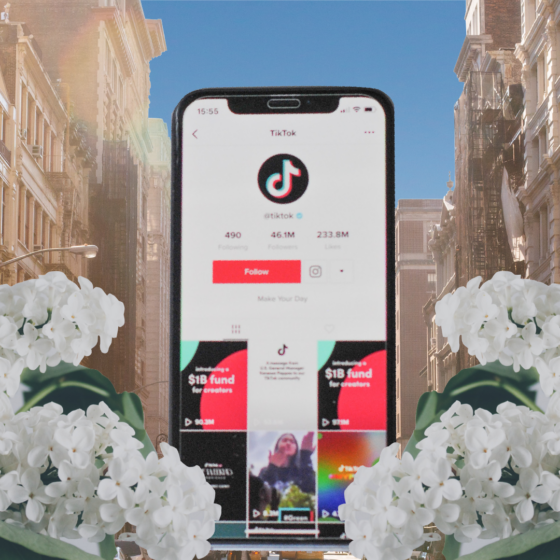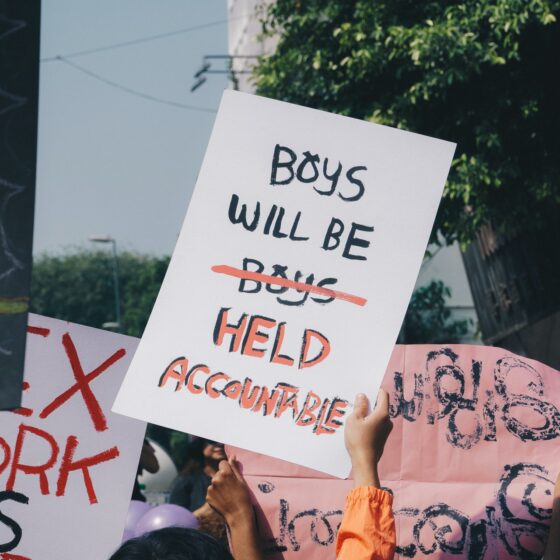Dear Olivia,
I was assaulted a couple of months ago, and I didn’t tell anyone. It felt too exposing, too scary to ask for help at the time. I just wanted to find a way to not think about it and hide in my apartment forever. The time since has been rough, and I now realize that I need support from my family and friends. But I’m so scared to tell them. Honestly, I don’t even know how to start having that conversation. And what if they think I’m lying? What if they reject me? It would make everything that much worse. How do I recover from rejection if they do react like I fear?
Isolated
Dear Isolated,
First of all, I’m so sorry that you’ve had to go through this alone. I think reaching out to your family and friends for help is an extremely healthy step to take. Dealing with the aftermath of an assault is so difficult, and doing it alone only makes it more challenging. That being said, I totally understand why you didn’t immediately tell people.
You never have to justify how you’ve coped with such a traumatic event. Everyone reacts differently, and slipping into denial is an extremely common coping mechanism. It can take people years to truly understand what happened to them or start talking about it. You are not alone in this experience. And that’s something to remember when you start opening up to your loved ones about what happened.
It could be helpful to have some links ready for any of your family who might not immediately understand why you coped the way you did.
In terms of starting the conversation, the most important thing to consider is whether it’s in an environment where you feel safe and comfortable expressing yourself. Not that we’re going out often with coronavirus on the rise, but I would definitely recommend having these conversations at home or somewhere private. Feeling more exposed than you have to for this isn’t going to do much good.
Keep in mind that you don’t have to tell everyone all at once. Maybe start with your closest friend, or the family member you talk to the most. That person can be there for the other conversations as a support person.
What took me a long time to learn is that if someone reacts badly to finding out about your assault, it doesn’t necessarily mean that they don’t care or they think you’re a liar. It’s likely that they just don’t understand your experience. And that still hurts, deeply, but it’s an important difference to bear in mind if this happens to you. The former is dismissive and not someone you need in your life, and the latter is someone who needs to do more learning before they can adequately support you.
It’s most likely that your loved ones will meet you with open arms when you tell them what happened, but in the small chance that some don’t understand immediately, there are some important points I want you to remember.
You do not need to listen to anyone who tries to invalidate your experience. If someone is asking questions to better understand what happened, that’s fine. But if they’re actively trying to disprove you, that’s not something you need to put up with. Your family’s role is not judge and jury, it’s to support YOU. Period.
You are entitled to a support network. Asking for help does not make you a burden. Anyone who tells you otherwise is just wrong.
Feelings like shame can be overwhelming and hard to handle. It’s ok to cry or be angry. You don’t have to keep it all in.
The only person whose opinion really matters is yours. In so many of life’s circumstances, external validation is deeply craved. This is no exception. It’s such a relief to hear someone say, “I believe you,” But if someone isn’t treating you the way you deserve, it’s important to remember that your opinion of yourself is the most important opinion of all. You know what happened and you know yourself. No one else knows your experience better than you. Hold onto that if someone tries to tell you differently.
I’ve been called a liar countless times over the past few years, in legal settings and out. Back in the day (a scant year or two ago), I was convinced that I would never recover. I just wanted to disappear and I didn’t see an end in sight.
I promise you that though these emotions are so unimaginably, deeply piercing now, that one day you’ll wake up and it’ll hurt less. Little by little, it will hurt less. You’ll make it through, no matter how those around you react.
As for anyone who doesn’t believe you, or is incapable of being empathetic to your experience? You deserve better, and you WILL find better. Humanity can seem pretty messed up these days, but I still believe that most people will surprise you with the amount of love and support they’re willing to give.
Want to find more #MeToo support? Log on to the Restless Network app to find resources and a community of over 10,000 women ready to help uplift you. Available on IOS and Android app stores.









